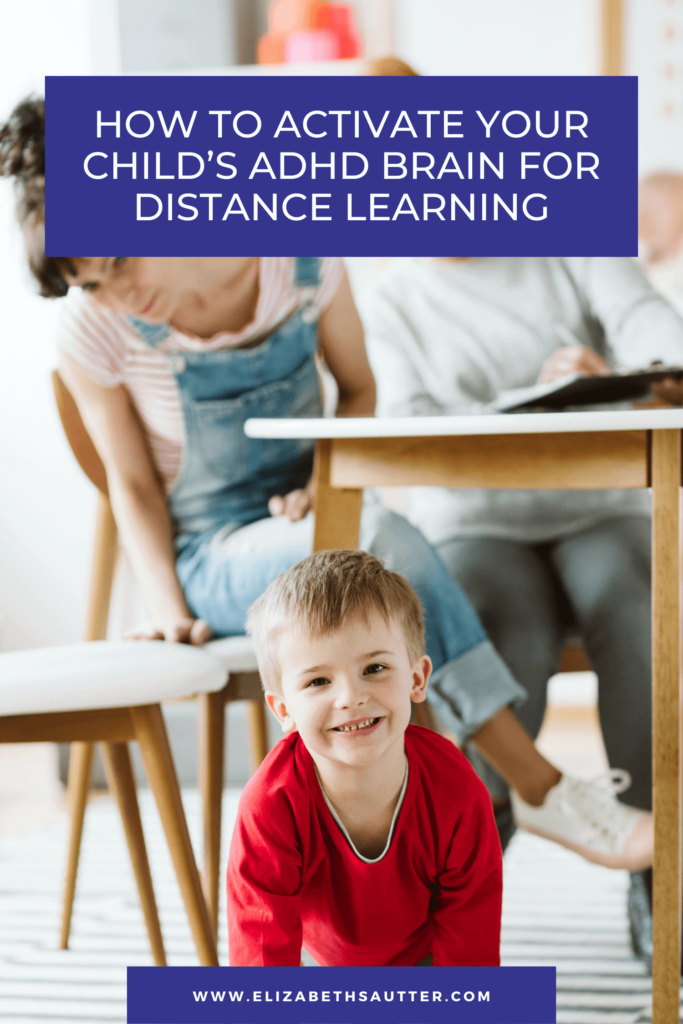As seasons change and children transition from leisurely days to the structured routines of school, it’s essential to recognize the impact this shift can have on their executive functions (EFs). These cognitive skills, responsible for tasks like planning and organization, play a crucial role in their social-emotional development and overall well-being. This blog delves into strategies that can help strengthen your child’s executive functions, empowering them to navigate various situations and enhance their social-emotional learning (SEL) journey.
Activate Your Child's Frontal Lobe through Mindfulness
Mindfulness, often associated with meditation, holds the key to engaging the brain’s frontal lobe – the center for executive functions. During times of uncertainty or stress, honing self-regulation skills becomes invaluable in managing emotions and distractions. These skills are the bridge between the reactive brainstem and the proactive frontal lobe, enabling effective decision-making.
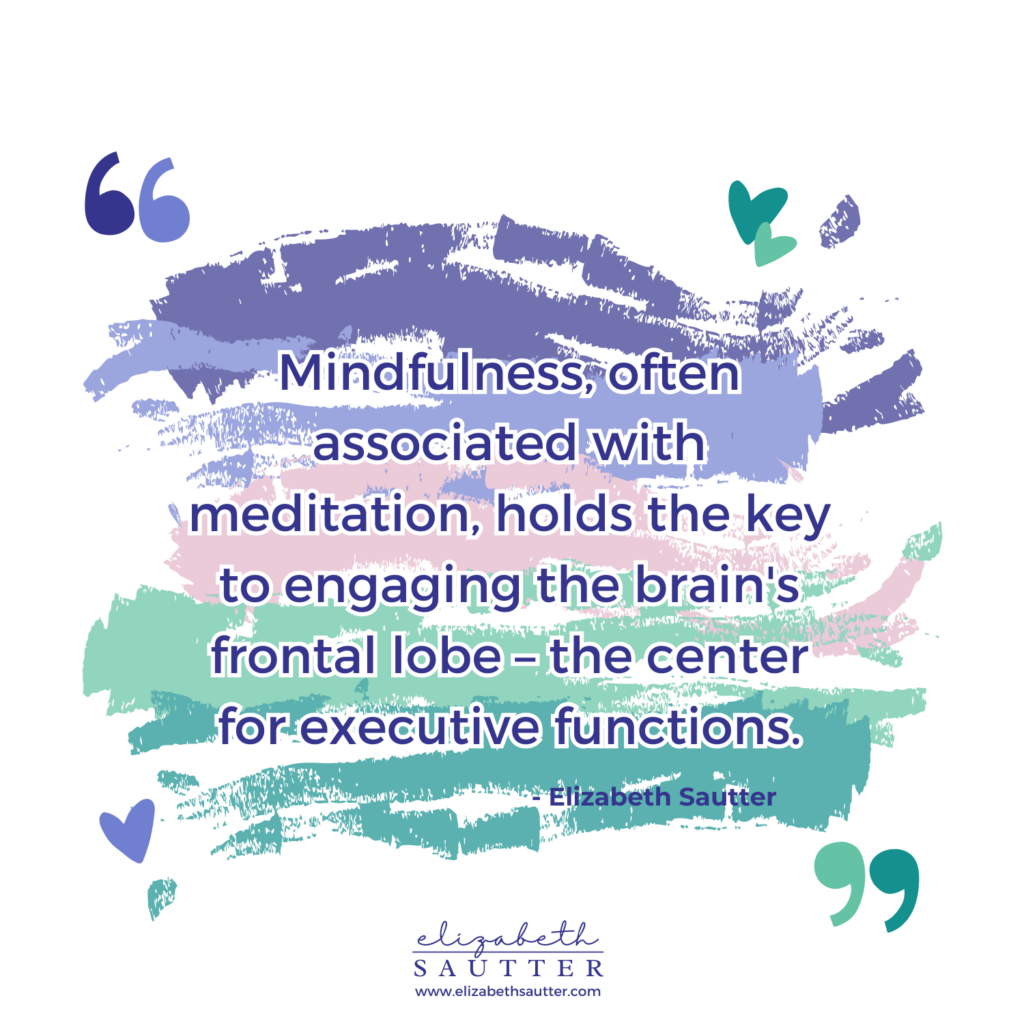
Practical Mindfulness Techniques:
- Sensory Awareness: Encourage your child to ground themselves by focusing on sensations like the feeling of their feet on the ground or wiggling their toes.
- Breathing Exercises: Teach them diaphragmatic breathing, with their hand acting as an anchor during inhalation and exhalation. Using simple phrases like “I am breathing in, I am breathing out” aids concentration.
- Mindful Consumption: Engage them in mindful eating, urging them to appreciate the textures and tastes of food while eating slowly.
- Mindfulness Apps and Resources: Explore apps like Smiling Mind, Headspace, Calm, and others. Books like “Sitting Still Like a Frog” and “Mindfulness for Teen Anxiety” offer valuable exercises.
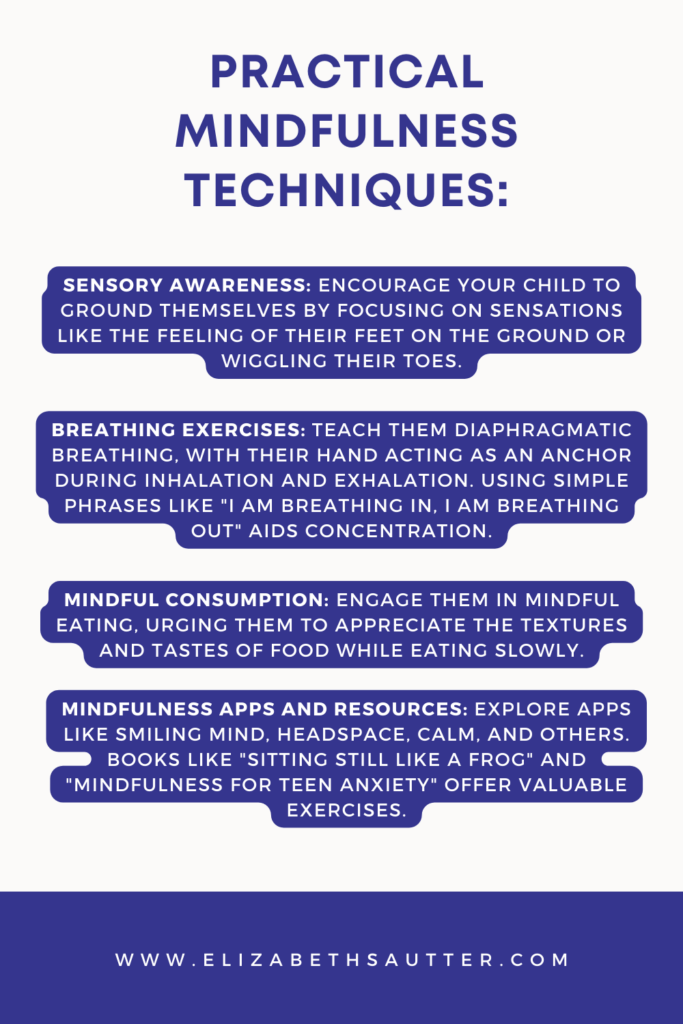
Crafting an Optimal Learning Environment for Focus
Creating an environment conducive to learning and growth is crucial for children, especially those with sensory processing needs. Addressing their “invisible” basic needs, such as sleep, nutrition, hydration, exercise, play, bonding, and sensory stimulation, can significantly impact their executive functions.
Strategies for Supporting Basic Needs:
- Structured Routine: Establish routines that ensure sufficient sleep, regular meals, exercise, and social interaction.
- Sensory Considerations: Customize the learning space based on sensory preferences, including lighting, colors, sounds, and tactile sensations.
- Independence and Reminders: Encourage independence by setting up reminders for tasks, snacks, and hydration.
- Simplified Space: Keep the learning environment organized and devoid of distractions.
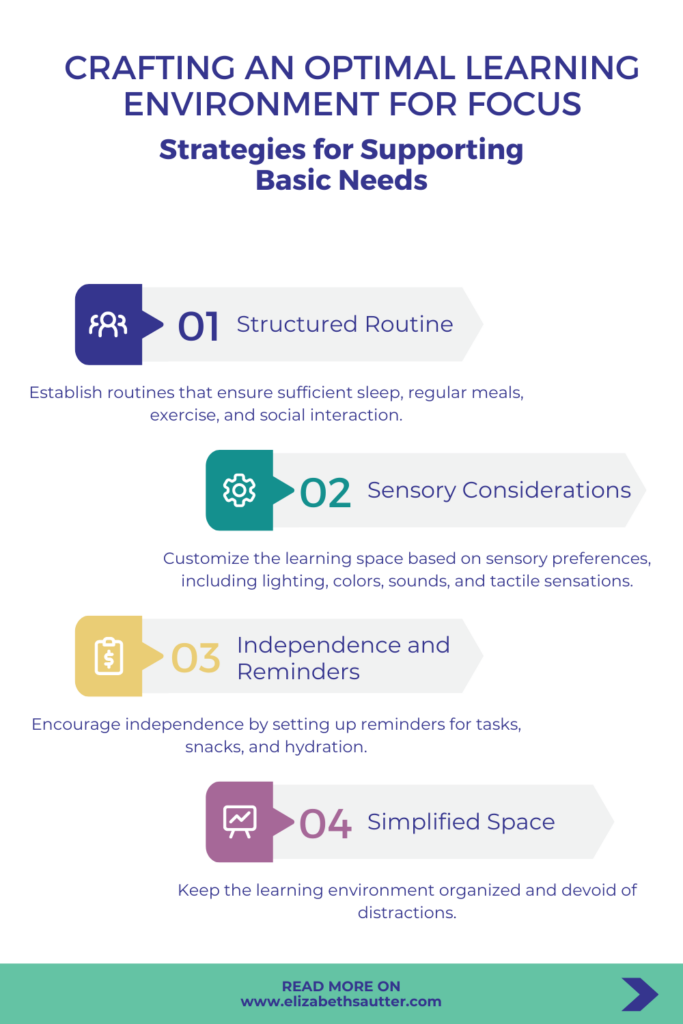
Fostering Independence and Accountability
Children with varying degrees of executive function challenges often struggle with planning, organization, and transitions. Empowerment through guided questions fosters their frontal lobe’s engagement and proactive problem-solving.
- Future Sketch Activity: Collaborate with your child on visualizing expectations for the upcoming period. Explore differences in perceptions and anticipate potential challenges.
- Guided Questions: Instead of issuing commands, use questions to stimulate independent thinking and planning. Ask about their strategies for tasks or handling various situations.
- Collaborative Statements: Provide choices rather than directives, promoting rational thinking. For instance, present outfit options for the day.
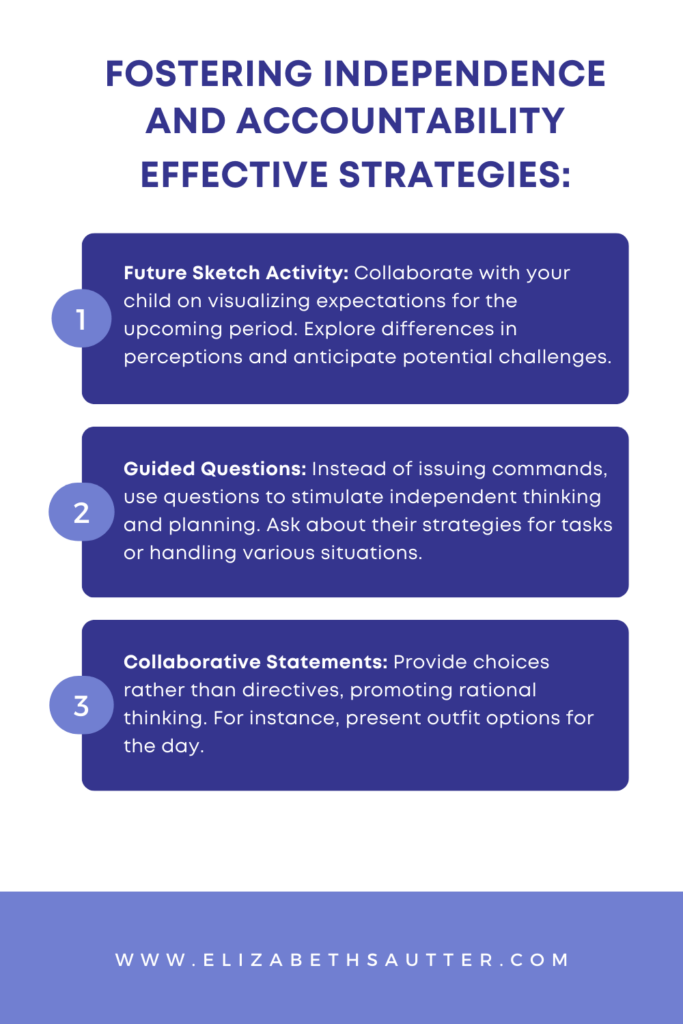
The journey of social-emotional learning intertwines with the development of executive functions, contributing to a well-rounded, emotionally intelligent individual. Mindfulness, optimizing the environment, and fostering independence through guided questions are pivotal strategies in nurturing executive functions. Empower your child’s journey by integrating these techniques, fostering their capacity to navigate emotions, social situations, and anxiety. For more practical activities and guidance on social-emotional learning, refer to the book “Make Social and Emotional Learning Stick: Practical Activities to Manage Emotions, Navigate Social Situations, and Reduce Anxiety.” Your child’s growth and well-being are on the path to flourishing with these mindful and proactive approaches.


